Mental Health and Movement: Gut Health

Have you ever had a “gut-wrenching experience”? Have you ever felt “butterflies” in your stomach when you are nervous? Why are we told to “listen to your gut” in a situation that requires making a choice? We use these common phrases without paying attention to the fact that we are linking emotions to the gastrointestinal tract. Emotions like anger, sadness, excitement, worry, and even joy can trigger symptoms in the gut. Conversely, our gut health can trigger emotional responses and affect our mental health. After discussing eating disorders in the previous blog, in this one we dig deeper into the connection between our GI tract and mental health.
Gut and Brain communication
Did you know that the gut is referred to as a the “second brain”, and rightly so. Like the brain, the gut is full of nerves. The largest network of nerves outside the brain in contained within the digestive tract.
The relationship between the gut and the brain begins in the womb as the central nervous system and the enteric nervous system are derived from the same tissues during fetal development. The communication between the brain and the gut is a bidirectional pathway that is mediated through the autonomic nervous system via the vagus nerve, the Hypothalamus-pituitary-adrenal axis and Serotonin hormone regulation.
Gut microbiome
Our gut houses a diverse bacterial microbe that have a symbiotic relationship with our bodies. The gut microbiome promotes digestion and food absorption. It helps build our immunity, produces and communicates with hormones like an endocrine gland. Gut bacteria can produce enzymes that regulate inflammatory pathways and amino acids that protect our bodies. No single species appear to be responsible for a healthy gut. It is the overall ration of different families of the microbes that matter. Through various studies, it has been established that an alteration in the gut microbiome has an influence on the communication between the gut and the brain through the three pathways.
Disruption of microbiome-gut-brain axis
Certain species of gut microbes protect the gut wall, helping to maintain the mucous membrane that stops the contents spilling into the blood stream. Without that barrier, you may suffer from a “leaky gut” which triggers, among other things, the release of pro-inflammatory cytokines, protein that increase the blood flow around sites of infection and regulate the body’s immune response. While this reaction is crucial to fight infections, it can lead to low mood and lethargy. It’s the reason we often feel tired when we are unwell. Over a short term, it helps to preserve energy to fight the infection. But in the long run, can lead to mood disorders.
How does this happen? If the information received via the vagus nerve from the gut indicates an imbalance in gut microbiome bacteria, the CNS will then decipher if an inflammatory response is necessary. Decreased vagus nerve activity has been associated with conditions such as Inflammatory Bowel Disease, Irritable Bowel Syndrome, depression and is attributed to dysfunction of gastric motility and unsatisfactory emptying of bowels.
The feedback from the vagus nerve also acts on the hypothalamus and hippocampus regions of the brain, resulting inactivation of the Hypothalamus-Pituitary-Adrenal axis. This activation results in release of ACTH and other corticosterone hormones that are stress responses of the body.
Serotonin, a crucial neurotransmitter, and hormone is the primary mood and cognition regulator. It is also a major contributor to the modulation of intestinal secretion and motility. Serotonin is essential in the treatment of depression and anxiety. It also plays a role in the normal operations of most of our brain functions, including regulation of mood, appetite, sexual functioning, memory, and sleep. Deficits of serotonin lead to increased irritability, anxiety, depression, and anger. Indigenous bacteria in the gut regulate serotonin synthesis and release and influencing the transmission of information from the gut to the brain and stimulation stress-responsiveness.
Although the research on the extent of this correlation continues, it is evident that the complex communication pathway of the microbiome-gut-brain axis affects our mental health tremendously. And similarly, psychological symptoms like worry, stress and trauma can take a toll on the digestive system.
How to improve your gut bacteria to support mental health — and vice versa
Emerging research has proved that an imbalanced diet of highly saturated fats, high sugar and low fiber intake has a large influence on the composition of the microbiome. Poor dietary habits, crash diets, excessive alcohol consumption and junk food can alter your gastrointestinal tract completely.
The first step to improving your gut health is to stop the consumption of packaged foods. Reduce the consumption of sugar, simple carbs and saturated fats. Next step would be to increase consumption of whole foods, fresh seasonal fruits and salads. In the same vein, adding probiotics like yoghurt, kimchi, kefir, apple cider vinegar etc., along with prebiotics like onion, garlic, asparagus etc. will improve the gut microbiome.
It is important to focus on good digestion. We need our parasympathetic nervous system to digest, thus “rest and digest”. Eat slowly, chew consciously and avoid screens at mealtimes. Post your meals, stroll for some time, before sitting down to work immediately. Train your mind to be in a restful state.
Based on these observations, you might also expect that some patients with functional GI conditions might have alleviation of symptoms with therapy to reduce stress or treat anxiety or depression. Multiple studies have found that psychologically based approaches lead to greater improvement in digestive symptoms compared with only conventional medical treatment.
Impact of exercise on gut health
Apart from food, there are numerous studies to prove that exercise has a positive effect on our gut bacteria. Exercise affects our gut microbes by increasing bacterial communities that produce short chain fatty acids, that are shown to modify our metabolism, immunity, and other physiological processes.
When you exercise, a number of neurotransmitters are released, including endorphins, endocannabinoids, and dopamine. Exercise also promotes neuroplasticity and increases oxygen supply to your brain. The lactate produced when we exercise, could serve as a fuel for certain bacterial species, promoting a healthy gut.
Although this will differ from person to person based on other conditions, one study showed that doing aerobic exercise for little as 20-30 minutes, coupled with resistance training three times a week, for eight weeks can show massive results. Pilates is a great combination of strength training and mindfulness, which can go a long way in improving your gut health, and inversely your mental health.
Conclusion
It’s high time we stop overlooking the direct correlation of our diet on our mental and physical health and stop looking at it as calorie-in and exercises as calorie-out.
We have an in-house nutritionist at Moushu’s Pilates, along with a variety of classes to help you with your health. Contact us.
Check out this video below for a fun Pilates workout
Written with Aarti Jhunjhunwala
